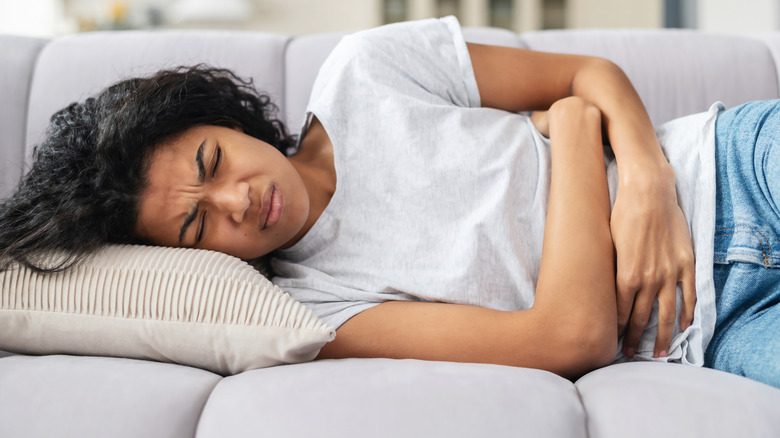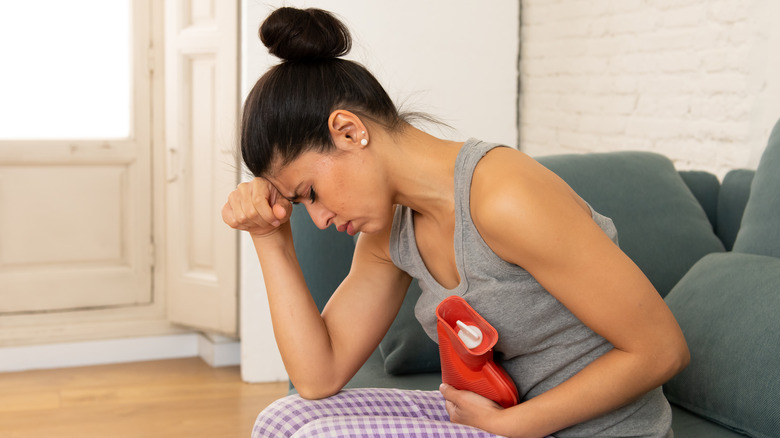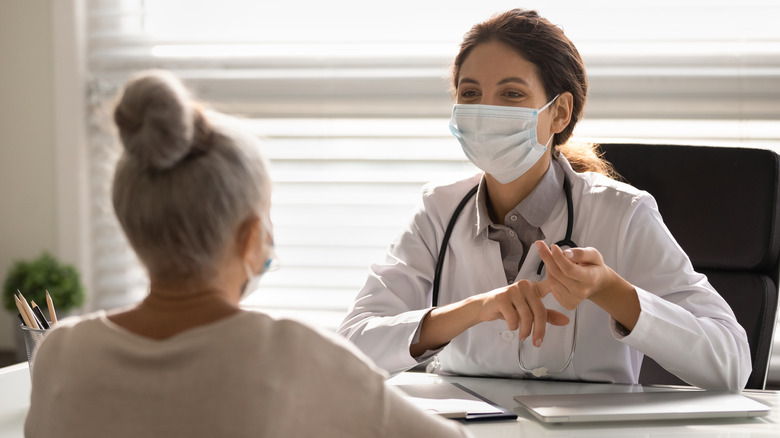How To Get Rid Of Cramps?
While menstrual cramps are a common occurrence and women all over the world experience it to some degree, it can be quite severe for some people, so much so that they have to seek medication to stop the pain from interfering with their day-to-day activities.
Scientifically known as dysmenorrhea, menstrual cramps comprise a throbbing or cramping pain in the lower abdominal region. While some women experience these cramps before they get their menstrual period, others undergo it both before and during their period (via Mayo Clinic).
According to Healthline, the exact reasons why someone experiences these cramps is not known, but some women are at higher risk of undergoing more painful periods as compared to others. For instance, people with a family history of cramps, smokers, people under 20, and those who have never had a baby are more vulnerable to experiencing cramps during their menstrual period.
Though some over-the-counter medicines can help get rid of cramps, some home remedies can relieve the pain just as well.
Continue reading to find out how to get rid of cramps.
Home remedies to cure menstrual cramps
If you experience mild menstrual cramps, you can opt for some home remedies to alleviate your condition. Per Healthline, if you place a heating pad on your back or pelvic area, you can get rid of the cramps. Similarly, massaging your abdomen or taking a bath can also provide you with some relief.
Aside from the aforementioned techniques, you can also — depending upon your comfort levels — perform certain types of exercises to reduce the pain. The website also suggests consuming light and nutritious meals.
If the pain persists, doctors suggest the use of certain medications, albeit moderately.
"Moderate use of nonsteroidal anti-inflammatory (NSAID) medication like Ibuprofen (Advil, Motrin) or naproxen (Aleve) is one of the best ways to curb period pain," says Dr. Jackie Thielen, a Florida-based women's health specialist.
"This is because NSAIDs reduce the amount of prostaglandins in the body. For this reason, taking a pill just before you get your period can keep the level of pain-causing prostaglandins from rising," she told Everyday Health.
When to see a doctor?
Doctors say that using home remedies and medication can easily help you get rid of menstrual cramps, so you should give them a try. However, if both methods fail to provide you relief and you continue to experience painful cramps, then it's time to seek the opinion of a healthcare professional to rule out any other complications.
This is because persistent cramps could be an indication of something more serious. Similarly, if your cramps are accompanied by nausea, vomiting, fever, diarrhea, or headache, do not ignore that.
Moreover, if your cramps are not confined to the abdominal region and are spreading to other parts of the body, then you should immediately book an appointment with your physician.
"If pain is more acute in onset or it radiates into the back or down the leg, it's time to talk with your doctor," says Melani Harker, M.D., Obstetrics & Gynecology at University of Utah Health Care.


